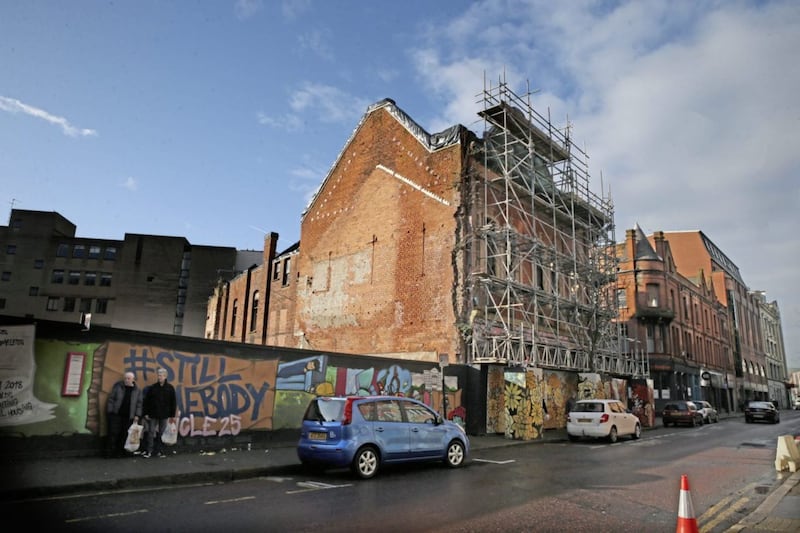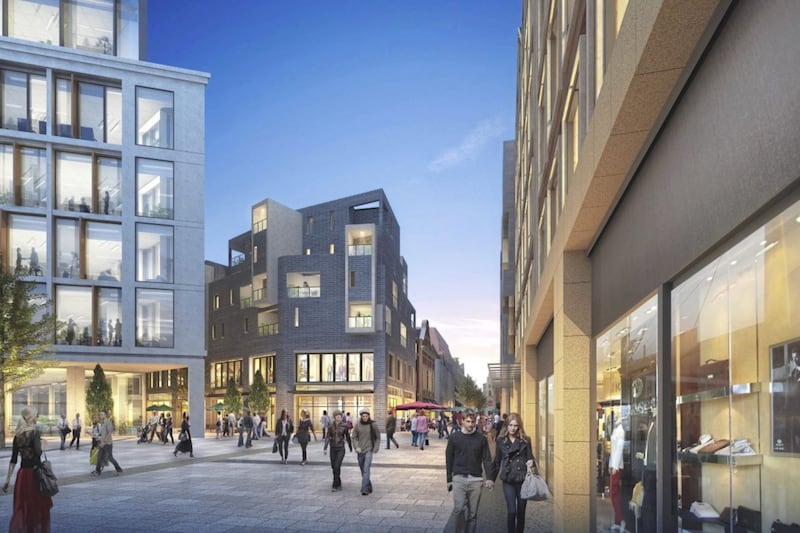CITY planners have given the green light for the £400 million urban regeneration project in the heart of Belfast, formerly known as Royal Exchange.
The development was approved by councillors almost in its entirety at a Belfast City Council planning committee on Thursday evening. In all 11 out of the 12 associated applications were approved, with only the partial demolition of a boundary wall around First Presbyterian Church on Rosemary Street failing to be ratified on the night. Issues surrounding this portion of the application centre upon a lack of agreement between the church and the developer, but it is believed progress could be made in the future for this work. Planning permission was agreed under a previous application for this work back in 2012.
The planning approval for the former Royal Exchange project paves the way for the transformation of land in the north east of the city centre and includes a new connection between North Street and Donegall Street, as well as routes from Royal Avenue and Rosemary Street, promoting permeability and enhanced connectivity to the vibrant Cathedral Quarter. The work includes the demolition of a number of buildings within the scope of the scheme, including sections of Royal Avenue, North Street and Rosemary Street.
The developer Castlebrooke Investments has said almost 6,000 permanent jobs are set to be created by the new office, retail and leisure space, which also features two hotels, the re-integration and refurbishment of seven listed buildings, three new public realm spaces and a 22-storey tower block.
To date the company has invested over £40 million acquiring the site along with planning and construction, which began on the listed building at Lower Garfield Street under the existing planning permission last year.
At Thursday night's planning committee meeting concerns were once again raised in relation to the nature of the development, with representatives from campaign groups Save Cathedral Quarter group and Ulster Architectural Heritage present. A number of councillors also spoke out including Sinn Féin's Geraldine McAteer, who said that people are concerned about the negative impact on heritage, arts and small businesses. She told the meeting that regeneration is needed, but the case for this has not been sufficiently made.
Meanwhile party colleague and councillor Arder Carson highlighted the disparity in weight given to the two supporters for the development compared to 215 objectors, who raised concerns during the consultation process.
Following the council approval Ulster Architectural Heritage said it has requested that the Department for Infrastructure call in the approved applications for a full review. Due to the size and extent of the Belfast development, eight of the 11 associated applications must now be signed off by the Department for Infrastructure before moving forward.






